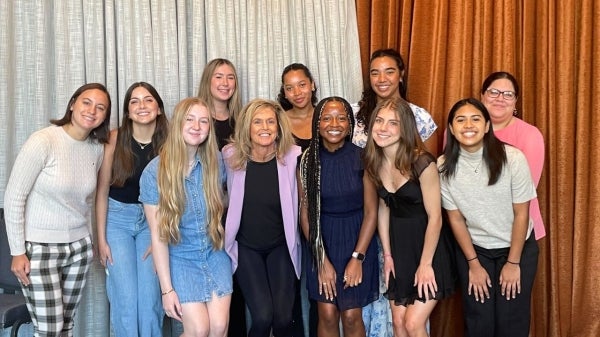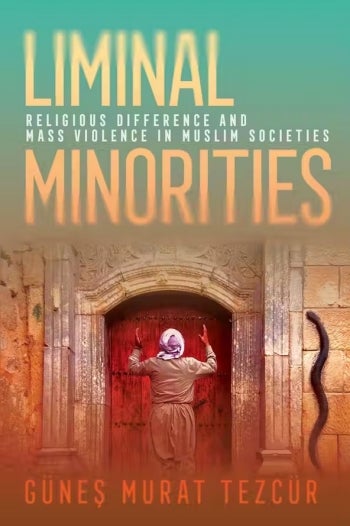School of Politics and Global Studies director's new book explores mass violence

Güneş Murat Tezcür, director of Arizona State University's School of Politics and Global Studies. Photo by Meghan Finnerty/ASU
Why do people commit atrocities and why are certain groups, including religious and ethnic, more vulnerable to large-scale violence?
These questions are explored in a new book by Güneş Murat Tezcür, director of Arizona State University's School of Politics and Global Studies, titled "Liminal Minorities: Religious Difference and Mass Violence in Muslim Societies." It will be available to order April 15.
Tezcür will also be teaching one of the School of Politics and Global Studies' new courses this fall, POS 394: Violence and Politics, which explores the same themes.
In Tezcür’s words, a liminal minority is a religious group that lacks social acceptance and theological recognition from a dominant religious group.
“Such groups are typically subject to various layers of stigmas that are transmitted across generations and experience widespread discrimination,” he said.
Tezcür began working on "Liminal Minorities" in the spring of 2017 when he organized a conference on women and armed conflict. The conference included a screening of a documentary about the plight of Yezidis, a small religious minority with a long history of persecution and discrimination who became the target of ferocious violence in the summer of 2014 when the Islamic State led an assault against them in northern Iraq.
The attacks resulted in the deaths of more than 3,000 Yezidis and the enslavement of around 6,800 members of the community, an overwhelming majority of whom were women and children. The perpetrators were local people who were neighbors of Yezidis.
"Overnight, they became killers, enslavers, rapers and looters," Tezcür said. "I wanted to make sense of how such a transformation took place, and the human potential for cruelty."
So Tezcür traveled to the Kurdistan region of Iraq, where many Yezidis were living, to interview survivors and listen to their stories of suffering and resilience. As he began to work on the manuscript for his book, Tezcür decided to expand the focus and develop a more comparative edge. Consequently, the book examines not only Yezidis in Iraq, but Alevis in Turkey as well as Baha'is in Iran and Ahmadis in Indonesia and Pakistan.
Tezcür believes his book is important due to the ubiquitous and inevitable nature of human suffering, which is necessary for discussions about sustainable peace and coexistence to be meaningful.
“My book focuses on the experiences of small religious minorities about whom many people would know a little," Tezcür said. "By highlighting their suffering and struggles, I am hoping that readers will appreciate the intrinsic value of religious diversity that is a fundamental aspect of being human.”
Video courtesy The College of Liberal Arts and Sciences
More Law, journalism and politics

Cronkite School launches Women Leaders in Sports Media live-learn program
Women in a new sports media program at Arizona State University got a solid game plan from a sports veteran at an Aug. 20 welcome event.“Be humble, be consistent and be a solver,” Charli Turner…

ASU center to host the Pursuits of Education and Excellence Symposium
The Center for the Study of Race and Democracy (CSRD) at Arizona State University is introducing the Pursuits of Education and Excellence Symposium as part of an ongoing initiative to commemorate the…
ASU journalism students dominate NATAS Student Production Award nominations
Students at Arizona State University’s Walter Cronkite School of Journalism and Mass Communication dominated the nominations field of the prestigious Rocky Mountain Southwest Chapter of the National…
